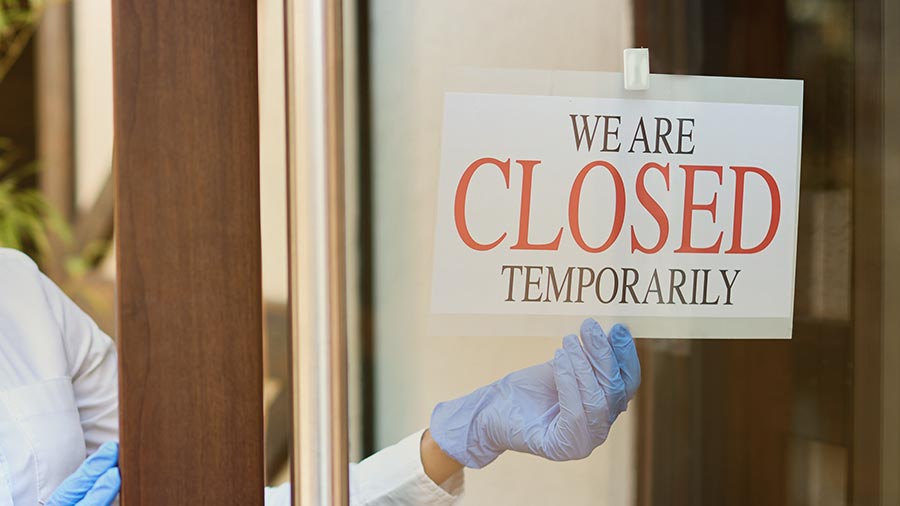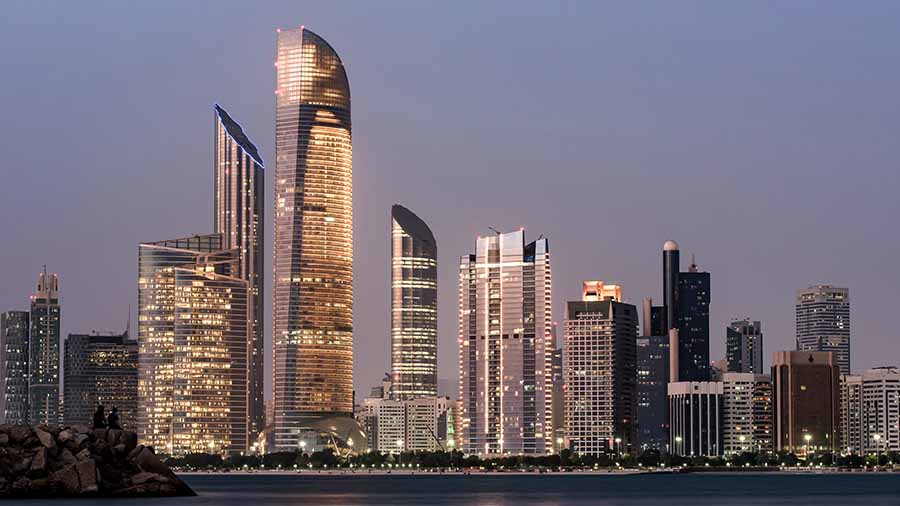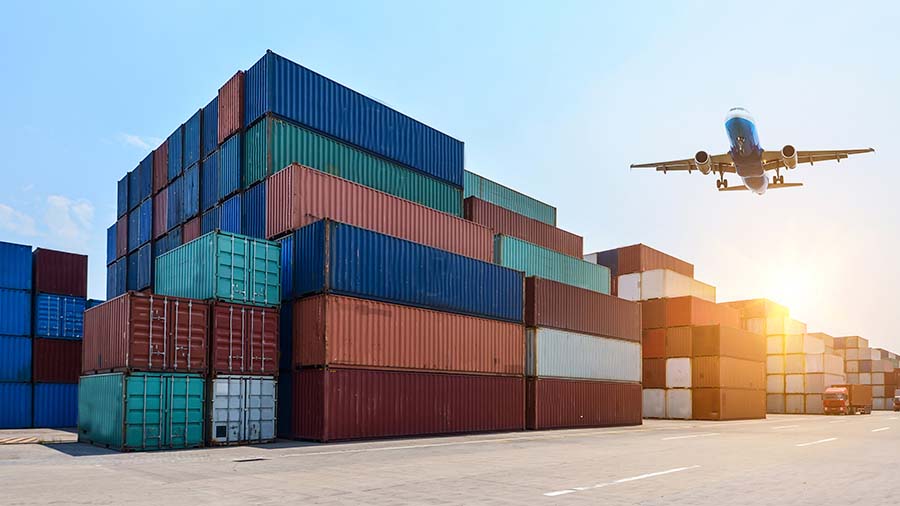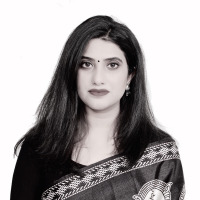Intellectual Property (IP) refers to creations of the mind, encompassing inventions, literary and artistic works, symbols, names, images, and designs used in commerce. Broadly, IP is divided into categories such as patents, copyrights, trademarks, and trade secrets.
These rights grant the creators or owners exclusive control over the use and dissemination of their innovations, offering a structured framework to secure economic benefits from their intellectual efforts. Such protections encourage creativity and innovation by ensuring that individuals and businesses can monetize their ideas, while at the same time, the protections create a foundation for regulated competition and development across industries.
Legal framework for IP Protection in the UAE
Several core federal laws underpin the UAE’s IP framework, addressing various types of intellectual property. Each law defines, protects, and enforces the rights associated with forms of IP, creating a structured legal environment that aligns with international IP standards.
- Federal Law No. 31 of 2006 on Industrial Property
This law covers the regulation and protection of industrial property rights, including patents, industrial designs, and trade secrets. It stipulates that only novel, useful, and industrially applicable inventions are eligible for patent protection, ensuring that IP protection is granted to innovations with a clear scientific basis. - Federal Law No. 37 of 1992 on Trademarks
This law initially defined trademark rights in the UAE, outlining the symbols, names, and images eligible for trademark protection. Its provisions aimed to safeguard the unique identity of brands and prevent unauthorized usage that could mislead consumers or dilute brand value. - Federal Law No. 7 of 2002 on Copyrights and Related Rights
Federal Law No. 7 provided comprehensive protections for authors, creators, and artists, covering literary, artistic, and scientific works. Under this law, authors' economic rights are protected for their lifetime plus 50 years after their death, offering a long-term safeguard for intellectual creations. - Federal Decree-Law No. 38 of 2021 on Copyrights
This updated law reinforces copyright protections by covering additional forms of intellectual creations, such as computer software, databases, and derivative works. It ensures that creative works in various media, including written and visual arts, are protected against unauthorized use and distribution. - Federal Decree-Law No. 36 of 2021 on Trademarks
The 2021 decree-law further refined trademark protection, defining a trademark as any recognizable sign—names, symbols, logos, or sounds—used to differentiate a business’s goods or services. The updated law also expanded the legal definition of trademarks to include sounds and other distinguishing elements, aligning with modern branding practices. - Federal Law No. 11 of 2021 on Patents
This law addresses the regulation and protection of patents, industrial designs, and other industrial property, offering patent protection to unique inventions across various technological fields. Patent holders gain exclusive rights to their inventions, fostering technological innovation by preventing unauthorized use of their patented technology.
Together, these laws reflect the UAE's commitment to a robust and adaptable IP framework, one that supports the nation's vision of a knowledge-based economy.
As a globally integrated economy, the UAE has committed to international IP standards by joining key treaties and conventions. These agreements ensure that IP rights in the UAE align with those of other major economies, promoting transparency, consistency, and cooperation across borders.
- World Intellectual Property Organization (WIPO)
The UAE is a member of the World Intellectual Property Organization, which promotes global cooperation in IP protection and development. Through WIPO, the UAE gains access to international resources and best practices, which help the country continually enhance its IP systems and policies. - Trade-Related Aspects of Intellectual Property Rights (TRIPS)
As a member of the World Trade Organization, the UAE is bound by the TRIPS Agreement, which mandates minimum standards of IP protection across member nations. TRIPS plays a vital role in standardizing IP laws globally, ensuring that foreign investors in the UAE receive consistent and reliable IP protections. - Paris Convention for the Protection of Industrial Property
The UAE's accession to the Paris Convention signifies its commitment to recognizing and protecting the IP rights of foreign nationals on an equal basis with UAE citizens. This commitment fosters an open and fair environment for international businesses and inventors, enhancing the UAE’s reputation as a reliable destination for business and innovation.
Through these international commitments, the UAE reinforces its IP laws and ensures compliance with global standards
Types of Intellectual Property in the UAE
Copyrights
Under Federal Decree-Law No. 38 of 2021 on Copyrights and Neighboring Rights, copyright protection in the UAE encompasses a wide range of original works across literature, arts, and sciences. This protection extends to works such as:
- Literary works; including books, pamphlets, articles and similar written materials.
- Digital works including software programs, applications, and databases, as specified by ministerial economic directive.
- Oral presentations including lectures, addresses, sermons and comparable spoken works.
- Theatrical productions, musical theater performances and mime shows.
- Musical compositions, both with and without accompanying dialogue.
- Audiovisual creations and recordings.
- Works of architecture including building designs and architectural sketches.
- Fine art pieces including drawings, paintings, sculpture, engravings, lithographs, silk-screens, raised relief works and intaglio prints.
- Photography and similar image-based works.
- Applied and plastic artistic creations.
- Technical illustrations including charts, maps, plans, three-dimensional topographical and geographical models, and architectural designs.
- Adaptations and derivative works, protected in accordance with the rights of their source materials. Protection also covers uniquely created titles and creative concepts developed for broadcast content.
The law is designed to prevent unauthorized reproduction, distribution, or display of copyrighted material, securing both moral and economic rights for creators.
Copyright protection in the UAE is granted automatically upon the creation of a qualifying work, with no formal registration required for protection. However, authors and creators may opt to register their works with the Ministry of Economy to formalize their rights, potentially strengthening their legal position in infringement cases.
The standard duration of copyright protection in the UAE lasts for the lifetime of the author plus an additional 50 years following their death. For works of applied art, economic rights expire after 25 years from the date of first publication.
Trademarks
A trademark in the UAE is defined under Federal Decree-Law No. 36 of 2021 as any visible sign capable of distinguishing goods, products, or services of one entity from another. This includes words, logos, letters, colors, and even non-traditional marks like sounds. Trademarks are vital for businesses, as they protect brand identity, enhance consumer trust, and prevent market confusion.
Who is eligible for trademark registration?
Under the provisions of this law, trademark registration is available to:
- UAE nationals and both individuals and legal entities engaged in commercial, industrial, professional, or service-related activities
- Non-UAE individuals and legal entities conducting commercial, industrial, professional, or service-oriented operations
- Foreign individuals and legal entities operating commercial, industrial, professional, or service businesses in countries with reciprocal agreements
- Additional legal entities.
To register a trademark, applicants must submit an online application through the Ministry of Economy's portal, including necessary documents such as:
- Trademark logo;
- A copy of the commercial licence;
- Power of Attorney;
- Priority document;
- Passport copy; and,
- Other attachments.
Once submitted, the application undergoes examination, and if approved, is published in the Trademark Journal for a 30-day opposition period. In the absence of opposition, the trademark is officially registered.
Registrations can be renewed indefinitely in ten-year increments, enabling long-term protection for established brands.
Trademark enforcement in the UAE is stringent, involving administrative, judicial, and border control mechanisms. The Ministry of Economy, Dubai Customs, and the Dubai Department of Economic Development work collaboratively to prevent and penalize trademark infringement. Violators may face significant fines, confiscation of counterfeit goods, and potential legal action, ensuring a strong deterrent against IP violations.
Patents
Patents in the UAE are granted to new inventions that provide an innovative solution or improvement with industrial applicability. This protection is critical for inventors, especially in fields like pharmaceuticals and technology, as it grants exclusive commercial rights to the patent holder, fostering innovation and research.
Patent applications are processed by the Ministry of Economy’s International Centre for Patent Registration (ICPR). Applicants must demonstrate novelty, inventive steps, and industrial applicability, submitting detailed documentation for the ministry’s evaluation. Recent reforms have streamlined this process, reduced application times and introducing fast-track options for priority sectors.
A UAE patent is valid for 20 years from the date of filing. The protection period cannot be extended beyond this term, ensuring a balance between rewarding inventors and encouraging the free use of inventions after a reasonable time.
The UAE has enacted recent reforms to expedite patent processing, reducing bureaucracy and introducing a fast-track option. These changes support sectors that benefit from rapid commercialization, particularly pharmaceuticals and emerging technologies, reinforcing the UAE’s position as an innovation hub.
Industrial designs
Industrial designs in the UAE cover the unique visual or ornamental aspects of an article, whether two-dimensional or three-dimensional. These protections allow businesses to safeguard the aesthetic elements of their products, preventing others from copying distinctive designs. To secure protection, an industrial design must meet the criteria of novelty and non-infringement on public order or morals. Applicants submit a detailed design with descriptions and images to the Ministry of Economy, which assesses eligibility before granting protection.
Industrial design registration in the UAE is initially valid for 20 years from the date of application, offering long-term protection for products with distinctive aesthetic elements, ensuring businesses can leverage design as a competitive advantage.
Trade secrets
Trade secrets refer to confidential business information, including formulas, processes, and practices, that give businesses a competitive edge. While not formally registered, trade secrets are protected under the UAE’s industrial property laws, which prohibit unauthorized disclosure or use by third parties.
Businesses are encouraged to adopt internal measures to protect trade secrets, such as confidentiality agreements, restricted access, and secure data storage. Implementing these precautions can strengthen a business’s case in the event of misappropriation. The UAE’s legal framework provides businesses with civil remedies to seek compensation or injunctions against parties that unlawfully acquire or disclose trade secrets. This legal recourse supports the UAE’s commitment to protecting proprietary knowledge in a competitive business environment.
Registration process for Intellectual Property
General registration procedures
Trademark Registration
The UAE’s trademark registration process is overseen by the Ministry of Economy, with requirements designed to ensure brand recognition and protection for businesses. Applicants must submit an online application that includes a clear representation of the trademark, details about the goods or services it represents, and necessary documentation, such as a commercial license, Power of Attorney, and passport copy.
Once the application is submitted, it undergoes an examination to check for conflicts with existing trademarks and compliance with the legal requirements under UAE’s Federal Decree-Law No. 36 of 2021. If approved, the application is published for opposition; if no objections are raised within 30 days, the trademark is registered and protected for a ten-year term, renewable indefinitely in ten-year intervals.
Patent Registration
Patent registration in the UAE, also under the Ministry of Economy, is available for inventions that demonstrate novelty, inventiveness, and industrial applicability. Applicants must submit a detailed application, often including technical specifications, drawings, and any previous filings (if applicable).
Once filed, the application undergoes a thorough examination to verify its eligibility. Successful patents are granted 20 years of protection from the filing date, providing exclusive rights to the inventor to prevent others from commercially exploiting the invention. This process has been streamlined by recent reforms to expedite grant times, making it particularly advantageous for the technology and pharmaceutical sectors.
Copyright Registration
Although copyright protection is automatic upon creation, the UAE offers an optional registration system through the Ministry of Economy’s Department of Copyright. Registering a copyright provides clear, documented proof of ownership, which can be beneficial in disputes or infringement cases.
The process, accessible through an online platform, involves submitting a description of the creative work—whether a literary piece, software, artwork, or audiovisual content—along with author details. Copyright in the UAE generally lasts for the lifetime of the author plus 50 years posthumously, with certain exceptions, such as applied arts, which have a shorter duration.
IIndustrial Design Registration
For industrial designs, the registration process begins with an application submitted to the Ministry of Economy. Eligible designs must be original and provide a distinctive appearance to a product.
Once granted, design rights afford the holder exclusive usage and manufacturing rights for 20 years from the filing date. This lengthy protection period aligns the UAE with international best practices in design IP protection, promoting innovation in sectors like fashion, electronics, and automotive industries.
Role of the Ministry of Economy
The Ministry of Economy serves as the central authority in the UAE for IP registration, policy enforcement, and educational initiatives. Its responsibilities encompass not only the processing and registration of IP applications but also the broader oversight of IP enforcement. The Ministry collaborates with other government agencies, including customs and law enforcement, to combat counterfeiting and ensure IP compliance. Additionally, the Ministry has streamlined IP registration by moving processes online, which provides businesses with efficient, user-friendly options for protecting their assets.
In addition to overseeing registration and enforcement, the Ministry of Economy offers a variety of support services aimed at fostering a culture of innovation and IP protection. This includes awareness campaigns to educate businesses and the public about the importance of intellectual property and the risks of infringement. Moreover, programs like the UAE Innovation Strategy and the Mohammed Bin Rashid Innovation Fund provide financial and strategic support to startups and innovators, further strengthening the UAE’s IP ecosystem. Through these initiatives, the Ministry not only helps protect the IP of UAE-based businesses but also attracts international firms by offering a secure, IP-friendly business environment.
Enforcement of Intellectual Property Rights
To ensure IP-related cases are handled with expertise and efficiency, the UAE has established specialized courts to deal with intellectual property disputes. These courts handle cases involving complex issues such as patent and trademark infringements, copyright violations, and counterfeit goods. The specialized courts enable faster, more informed rulings, providing rights holders with prompt relief and protecting the value of registered IP assets.
Civil litigation in these courts allows rights holders to seek remedies like injunctions to stop the infringing activity, compensation for damages, and the confiscation or destruction of infringing goods.
Federal Customs Authority in combating counterfeiting
The Federal Customs Authority plays a crucial role in the UAE’s IP enforcement strategy by monitoring and intercepting counterfeit goods at the country’s borders. Through active collaboration with local customs offices, the Federal Customs Authority conducts inspections of goods entering and transiting through the UAE to prevent the distribution of counterfeit products. In cases of suspected infringement, customs officials can seize and destroy counterfeit items, ensuring they do not enter the market. Furthermore, the Customs Authority collaborates closely with rights holders to identify counterfeits and take swift action, reflecting a proactive stance against IP violations in international trade.
Apart from judicial action, administrative measures are available to IP rights holders in the UAE. For instance, businesses can file complaints with the Ministry of Economy or the Department of Economic Development, leading to swift administrative actions such as product seizures, fines, or the destruction of counterfeit goods. Additionally, sending cease-and-desist letters to alleged infringers is a common pre-litigation approach, often allowing for quicker and more cost-effective resolution. For serious or deliberate cases of IP infringement, criminal prosecution can also be pursued, where authorities impose penalties, including imprisonment and substantial fines, to deter future violations.
Infringement penalties
The UAE enforces strict penalties for IP violations, which vary depending on the type and severity of the infringement. These penalties serve as both a deterrent and a mechanism to compensate rights holders for damages caused by IP violations.
- Copyright violations: The UAE Copyright Law imposes severe penalties for infringing on the economic and moral rights of authors. Individuals or entities found guilty of distributing, selling, or using copyrighted works without permission can face imprisonment and fines ranging from AED 50,000 to AED 500,000 (USD 13,600 to USD 136,100). These penalties highlight the UAE’s stringent stance on copyright infringement, particularly for unauthorized commercial exploitation of creative works.
- Patent violations: Under UAE law, infringing on a registered patent can result in penalties that include imprisonment from three months to two years, along with fines ranging from AED 5,000 to AED 100,000 (USD 1,300 to USD 27,200). These measures provide robust protection for inventors and innovators, safeguarding patented inventions from unauthorized commercial use.
- Trademark violations: Violating trademark rights in the UAE also incurs severe penalties. Offenders may face imprisonment and/or fines starting from AED 5,000 (USD 1,300), with higher penalties for repeat offenders. The trademark protection framework aligns with international standards and is intended to secure brand integrity and consumer trust.
- Commercial Fraud Law Penalties: In 2016, the UAE introduced the Commercial Fraud Law to enhance IP enforcement, particularly in combating counterfeit goods. This law grants authorities the power to close down businesses involved in selling counterfeit items, with repeat offenders facing cancellation of their trade licenses. While the maximum fines for counterfeiters dealing in pharmaceutical and food products can reach AED 250,000 (USD 68,000), counterfeiters in other categories are also subject to significant penalties. The law also extends to free zone companies, covering a broad range of industries across the UAE.
Recent developments and reforms in IP Law
The UAE’s drive for reform in intellectual property began in earnest after the country was placed on the U.S. Trade Representative’s Special 301 Report Watch List in 2018 for insufficient IP protections. In response, the UAE introduced a series of legislative improvements to its IP regime. These changes were well-received globally, and in April 2021, the UAE was officially removed from the Watch List. The UAE’s updated IP framework now includes comprehensive protections across various IP categories, including patents, trademarks, copyrights, industrial designs, and trade secrets.
Several landmark reforms have further solidified the UAE's commitment to IP protection. In December 2021, the UAE joined the Madrid Protocol, an international treaty that simplifies trademark registration in multiple countries. This move streamlines the process for UAE-based businesses seeking to protect their brands globally, reducing administrative and financial burdens associated with multi-country registrations. The UAE has also introduced updated laws addressing copyright protection, including the creation of the first collective management organization (CMO) in the Gulf region in 2022. This CMO allows for copyright licensing and royalty collection for literary rights, representing a major step toward a more structured copyright ecosystem.
The UAE’s patent framework has also been modernized, with Decree 321 introduced in 2020 to enhance protections for pharmaceutical products. This decree addresses long-standing concerns in the industry by prohibiting the unfair commercial use of undisclosed data submitted to obtain marketing approval for pharmaceuticals. Additionally, with the closure of the Gulf Cooperation Council (GCC) Patent Office to new applications in January 2021, the UAE has taken steps to expand its own national patent registration system, ensuring that inventors continue to have robust avenues for patent protection.
Impact of reforms on businesses and entrepreneurs
These IP reforms have had a profound impact on businesses and entrepreneurs, particularly in fostering an environment that encourages innovation, investment, and market expansion. The new IP system, introduced by the UAE Ministry of Economy in early 2024, includes 11 initiatives aimed at facilitating IP registration, enforcement, and commercialization.
Notable initiatives under this IP system include the “Innovation Hub” and the “Patent Hive,” both of which provide technical assistance to local inventors and entrepreneurs navigating the patent application process. The UAE has also emphasized the development of IP expertise among its citizens with programs such as the “Emirati Fahes” initiative, which offers training in IP fields and supports job creation in IP-intensive sectors.
The reforms also support faster and more accessible trademark registration through initiatives like the “One Day TM” service, which expedites trademark issuance, and the IP SPORT program, which promotes trademark awareness in the sports sector.
Further supporting IP enforcement, the UAE has launched initiatives like “InstaBlock,” which enables rapid response to livestream copyright infringements, and the “IP Platform,” a consolidated digital interface that integrates IP enforcement data from various government agencies. This platform leverages AI technology to streamline enforcement actions, ensuring that businesses’ IP rights are upheld promptly and effectively.
The recent IP reforms have not only strengthened protections but also incentivized the commercialization of intellectual property. For instance, the Ministry of Economy has emphasized IP as a tool for economic diversification, encouraging businesses to license and export innovative UAE-made products and technologies to international markets. These efforts make the UAE an attractive destination for IP investment and bolster its appeal to foreign entrepreneurs, creating new opportunities for growth across sectors.











